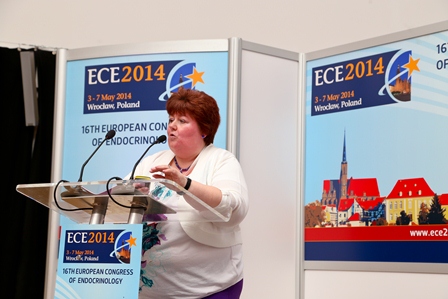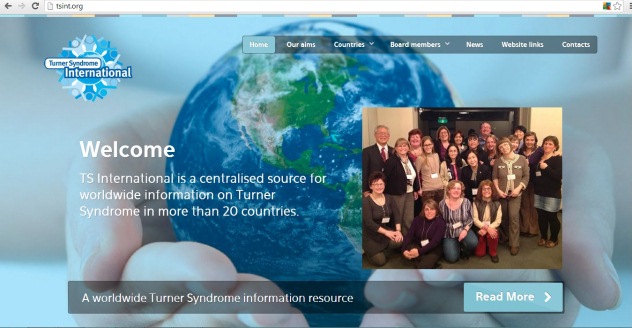Turning the Tide on Turner Syndrome
07 May 2014
After being privileged to sit in on a presentation by Arlene Smyth at Monday’s Nurses session, I wanted to find out a little more about her work. Sitting in front of the venue’s iconic fountains, Arlene told me about her mission for the last 15 years to improve the support and information available to those with Turner Syndrome.
“Organisations can be fearful of working together. They can be afraid of being told what to do, of being criticised.”
We all worry about losing our identity when part of a collaboration, which makes successful partnerships all the more rewarding. Arlene can be congratulated for this week launching Turner Syndrome International, a website which connects Turner Syndrome patient groups across the world. With 20 countries currently represented, the website offers an opportunity for national Turner Syndrome groups to openly share information, good practice and literature. The organization is keen for further countries to sign up, and can be visited by clicking on the image below.
 Arlene is Executive Officer of the Turner Syndrome Support Society [UK] (TSSS[UK]), an organization at which she has been the centre of since its inception 15 years ago. Her motive has been to ensure that patients with Turner Syndrome have access to the best and most reliable information, and to counter widespread misinformation. The landscape today is very different to 15 years ago, when the organization was set up, but she is undeterred:
Arlene is Executive Officer of the Turner Syndrome Support Society [UK] (TSSS[UK]), an organization at which she has been the centre of since its inception 15 years ago. Her motive has been to ensure that patients with Turner Syndrome have access to the best and most reliable information, and to counter widespread misinformation. The landscape today is very different to 15 years ago, when the organization was set up, but she is undeterred:
“People think Facebook is quick, but for those requesting information or support there’s so much back and forth that it’s much quicker just to have a five minute conversation.”
That is Arlene – always keen for a chat and genuinely interested in your situation; and despite her misgivings about the advent of social media, she is grabbing the modern age with both hands. The TSSS[UK] has both a Facebook page and a Twitter account (@TurnerSyndSoc) with 145 followers at the last count (that’s many more than me!).
Her message is spreading in new directions. The latest is, surprisingly, Ear Nose and Throat. Noting that a disproportionately high number, perhaps 80%, of Turner Syndrome diagnoses made later in life result from investigations into recurrent ear infections, she has started a campaign to ask the specialty to just “bear TS in mind”.
Share this story
Top stories
Call for nominations for Awards Committee Chair
30 Oct 2024
James M Tanner Award - 2025 nominations open
30 Oct 2024
Would you like to host the BSPED annual meeting?
21 Oct 2024